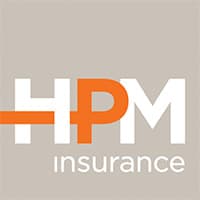Homeowners insurance premiums are based on many different factors, and this provides New Hampshire residents with multiple opportunities to reduce their premiums. If you own a residence in the state, here are some ways to save money on your home insurance.

How Can I Save Money on My New Hampshire Homeowners Insurance?
Make Sure You’re Not Over-Insured
Insurance is designed to provide you with financial protection against many what-if scenarios, and it’s good to have a policy in place to protect one of the largest assets you own. With some types of insurance, though, there’s a point at which you can become over-insured.
Being over-insured simply means that you have more insurance than you need. The result is that you’re overpaying for coverage.
This can happen with NH homeowner's insurance because included in nearly every policy is an inflation guard, which typically ranges from 2 - 8% depending on the policy. This is a useful coverage because most things, including homes, cost more to fix or rebuild over time.
A clear example of this is looking at census data where the median value of a single-family home in NH in 1970 was $63,000. If you purchased and insured your home in 1975 for around this amount, the same house in 2000 had a median value of $133,000. Without the inflation guard, your home would be severely under-insured.
However, a house in 1970 insured at $63,000 with a 5% inflation guard that compounded every year for 30 years would be insured for $259,310. Assuming no major renovations or additions added, this would be too much.
Inflation rates vary over the years, so it is suggested that you review the dwelling coverage (which is the cost to replace your home from the foundation up) every five to ten years to ensure it is in line. Agents have software that can help calculate the home's estimated replacement cost.
Can I Reduce the Other Structures Coverage and Personal Property Coverage to Save Money?
Insurance agents get this question a lot, and the answer is typically no. This is because home insurance is a package policy with the coverage driven by the dwelling coverage. The other structures coverage (meaning a structure not attached to the house such as a shed, detached garage, barn, etc.) is usually 10% of the dwelling coverage, while personal property is usually anywhere from 50% to 75% of the dwelling coverage depending on the policy.
If your home is insured for $250,000 your policy will most likely show other structures coverage at $25,000. If you don't even have a shed, never mind a detached barn, this may seem like a good way to save money by removing this coverage. Unfortunately, many companies cannot even remove this coverage within their system as it is automatic and built into the pricing. That said, we are seeing a few companies update their systems to allow for more coverage customization. This is great as no one likes to pay for something they will never need or use.

Install Home Security Devices
Many insurance companies will offer a discount on certain coverages within your homeowner's policy if you install a security device on your property. These discounts are typically a percent off relevant coverages, which tend to be property coverages and not liability coverage, but the savings can add up.
Exactly what security devices qualify for a discount and what that discount is, varies from one insurance company to the next. To make sure a particular security device will get you a discount on home insurance, contact HPM Insurance or your New Hampshire insurance agent before you install any device. Your agent will be able to check what your insurer will offer for a particular device.
Bundle Homeowners and Other Insurance
Most residents who own and insure a home also need car insurance. If you need more than one type of personal insurance, bundling is an excellent way to save on two or more policies. When you purchase several policies from the same insurance company, they’ll usually provide a substantial percent-based discount on each policy that’s bundled together.
Business insurance policies usually can’t be bundled with personal policies like home insurance. There are plenty of personal policies that you might be able to bundle together, though. Auto insurance, boat insurance, ATV insurance, and many more property and casualty policies might qualify.
Increase Your Deductible
A deductible is the portion of a covered claim that you are responsible for before the insurance company pays. It only makes sense that the higher the deductible, the less the carrier will have to pay, the lower the premium. Deductibles vary from some as low as $250 to as high as $5,000 (or higher on high-end homes.)
Though saving money is important, you want to pick a deductible that you can afford to pay should a claim occur. On the other hand, if you would never file a claim if the damage were less than $1000, don't have a $500 deductible. Pick the deductible that is right for you and your cash flow.
Check for Less Common Insurance Discounts
In addition to the common ways to save on a homeowner's policy, many insurance companies have less common discounts. For example, some insurance companies may reduce premiums slightly if:
- No one in the house smokes
- You recently purchased your home
- You elect to pay your bill electronically
- You pay your premium in one annual installment
Discounts vary, but any amount you can get off your premium is money that you’ll keep in your bank account. Your agent can help you check to see whether any of these or other similar discounts qualify for a credit.
Compare Insurance Policies with an Independent Agent in New Hampshire
One of the best ways to save on homeowners insurance (or any insurance) is to compare different policy options with an independent insurance agency like HPM Insurance. An independent agent isn’t tied to any one insurer, so we're free to show you policies from many different insurance companies in the state. This makes it easy to select the most affordable policy that provides the coverage you need.
To speak with an independent agent in New Hampshire who knows homeowner's insurance, contact us at HPM Insurance.


